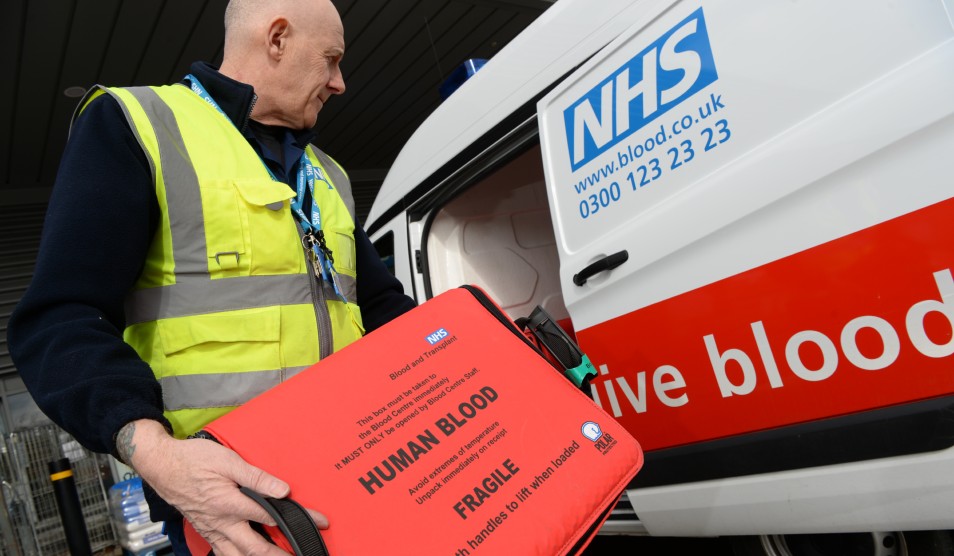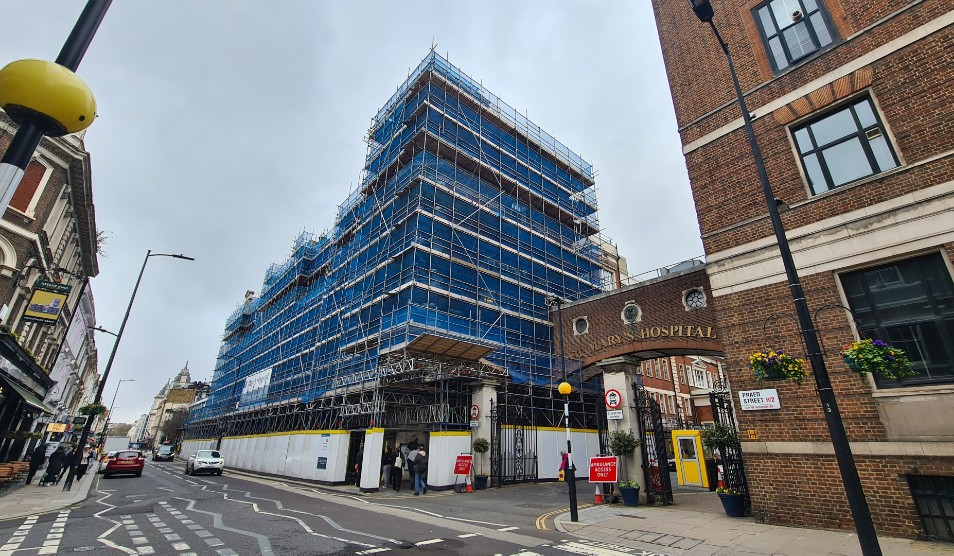Imperial College student undergoes pioneering brain tumour surgery
A PhD student from Devon has undergone pioneering brain surgery at Imperial College Healthcare NHS Trust.
Reuben Hill, 22, was treated for a brain tumour at Charing Cross Hospital, where surgeons used two pieces of innovative technology to help them remove the tumour without damaging any healthy brain tissue.
Currently, one of the major obstacles to removing brain tumours is that the boundary between the tumour and healthy brain tissue is very hard to see even with an operating microscope. Surgeons must rely on numerous biopsies taken during the course of the surgery to help guide the removal of the tumour. This can sometimes mean healthy tissue is also cut away which can result in serious side effects such as the loss of speech or movement in some parts of the body.
Neurosurgeons, Babar Vaqas and Kevin O’Neill used a specialist laser probe to detect the subtle differences between cancerous and healthy brain tissue enabling them to accurately map the tumour site. It was then removed using the iKnife, a specialist surgical tool which sucks in the smoke created by the electric scalpel used during surgery and instantly analyses it, confirming to surgeons that they are cutting away cancerous tissue, leaving only healthy tissue behind.
Reuben is one of the first patients in the UK to receive this treatment as part of a trial at Imperial College Healthcare NHS Trust, the only hospital trust in the country currently using these technologies. He was filmed during his operation by BBC News.
Reuben said: “Being diagnosed with a brain tumour was a huge shock. When Babar and Kevin approached me about using these two innovative technologies during my surgery I jumped at the chance, especially as through my physics studies I understood how the laser probe would work to accurately detect the cancerous tissue.”
Reuben was diagnosed with a brain tumour and several other conditions after his university housemates found him on the floor at his student accommodation, where he is studying for PhD in physics at Imperial College, London.
Mr Babar Vaqas, neurosurgeon at the Imperial College Healthcare NHS Trust said:
“Being able to use both of these innovative technologies during delicate brain surgeries is considerably improving the accuracy of removing brain tumours. This means that patients are far less likely to suffer from the side effects of cutting away healthy tissue such as loss of speech.”
About the laser probe
Mr Vaqas is carrying out a study of the laser probe in a research project for his MD degree at Imperial College London.
Babar’s post as neurosurgeon at the Trust is supported by the Pickard Foundation, and the project is supported by BTRC (Brain Tumour Research Campaign) and BTR (Brain Tumour Research).
Verisante Technology, Inc have provided the Trust with their Verisante Core and laser Raman Spectroscopy system for testing.
About the iKnife
The iKnife is based on electrosurgery, a technology invented in the 1920s that is commonly used today. Electrosurgical knives use an electrical current to rapidly heat tissue, cutting through it while minimising blood loss. In doing so, they vaporise the tissue, creating smoke that is normally sucked away by extraction systems.
The inventor of the iKnife, Prof. Zoltan Takats of Imperial College London, realised that this smoke would be a rich source of biological information. To create the iKnife, he connected an electrosurgical knife to a mass spectrometer, an analytical instrument used to identify what chemicals are present in a sample. Different types of cell produce thousands of metabolites in different concentrations, so the profile of chemicals in a biological sample can reveal information about the state of that tissue.
For more information please contact the press office.





